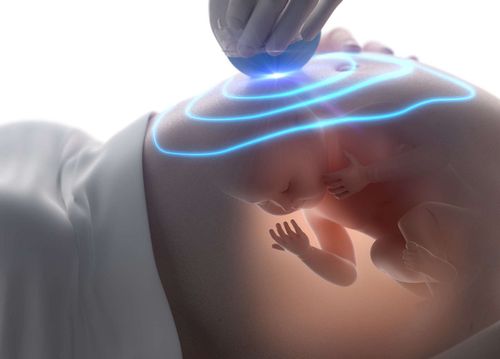This is an automatically translated article.
The article was professionally consulted by Doctor Head of Obstetrics and Gynecology Department, Vinmec Hai Phong International General Hospital.
The umbilical cord is the only link between mother and baby, carrying nutrients and oxygen to feed the baby. However, when the umbilical cord is knotted, it will seriously affect the pregnancy. Dangerous complications can occur both during pregnancy and during labor.
1. What is knotted umbilical cord?
A knotted umbilical cord is one of the rare occurrences of pregnancy and delivery but poses a life-threatening danger to the unborn baby. According to research data, the rate of knotted umbilical cord accounted for 0.3-2.2% of births and raised the fetal mortality rate to 4 times higher than that of a normal pregnancy.
During pregnancy, the umbilical cord plays an important role in transporting oxygen and nutrients from mother to fetus, ensuring the baby's life while in the womb. However, due to a certain factor, the umbilical cord is knotted, depending on whether the knot is tight or loose, it will cause complications during pregnancy.
2. Causes of knotted umbilical cord formation
The umbilical cord knot is caused by during fetal movement, accidentally moving through the arcs of the umbilical cord to form a knot. There are a number of favorable factors that increase the risk of umbilical cord knotting such as:
The umbilical cord is too long Pregnant woman with polyhydramnios Small fetal size The baby is a boy (active) Pregnant woman with gestational diabetes twins with 1 amniotic sac Pregnant woman with amniocentesis Pregnant women who have had many births Pregnant women who use stimulants during pregnancy It is difficult to determine the exact time when the knotted umbilical cord is formed. The knotted umbilical cord can form very early from 9-12 weeks of gestation, because at this stage the amniotic fluid volume is more than the fetal volume.

3. Is knotted umbilical cord okay?
The knotted umbilical cord has cases of loose and tight umbilical cord, the degree of danger will depend on the condition of the knot. If the ligation is loose, the fetus will be less affected, on the contrary, if the umbilical cord is tightened, the fetal circulation is impeded, the baby is not supplied with oxygen and nutrients, and may die while still in the womb. mother's belly. The rate of knotted umbilical cord only occurs in about 2% of pregnant women, most of the umbilical cord is loose and does not cause harm to the baby during pregnancy.
However, when in the womb, babies tend to always move through playing, turning their heads... so the umbilical cord knots can be loosened and then gradually tightened, affecting the metabolism of the baby. Mother and baby. This also poses a risk to labor, when the baby's head is pushed out, the umbilical cord is also pulled down, the knot becomes tighter and it is very likely that the baby will die during normal labor if not. recognize knotted umbilical cord early.
On the other hand, there are also many cases where the umbilical cord is found to be knotted after the baby has been safely delivered. Fortunately, this happens because the baby's umbilical cord is long, turning the baby's head down does not stretch the umbilical cord and the umbilical cord knot is not too tight.
4. Recognize signs of knotted umbilical cord

Pregnant women can feel unusual changes in fetal movements every day, especially in the last weeks of pregnancy. Pregnant women should go to the doctor immediately to assess the health of the fetus if they detect signs of knotted umbilical cord such as: The fetus has little or weak fetal movements, the abdomen is protruding, and it is not round. Ideally, pregnant women should have regular antenatal check-ups and ultrasounds, and pregnant women should also regularly monitor the fetal heart to determine if there is a risk to the baby.
The recognition through fetal movement monitoring plays a decisive role in the emergency work of the knotted umbilical cord. There have been many successful emergency cases of knotted umbilical cord, but there are also countless unfortunate cases, so pregnant women should not be neglected, especially in the last months of pregnancy.
Currently there is no method to prevent cord knots from occurring in the womb. Therefore, proper maternity care is essential to ensure a healthy and uncomplicated pregnancy.
Vinmec International General Hospital offers a Package Maternity Care Program for pregnant women right from the first months of pregnancy with a full range of antenatal care visits, periodical 3D and 4D ultrasounds and routine tests to ensure that the mother is healthy and the fetus is developing comprehensively.
Pregnant women will be consulted and checked for health under the close supervision of experienced and specialized Obstetricians, helping mothers have more knowledge to protect their health during pregnancy as well as reduce reduce complications for mother and child.
Please dial HOTLINE for more information or register for an appointment HERE. Download MyVinmec app to make appointments faster and to manage your bookings easily.













